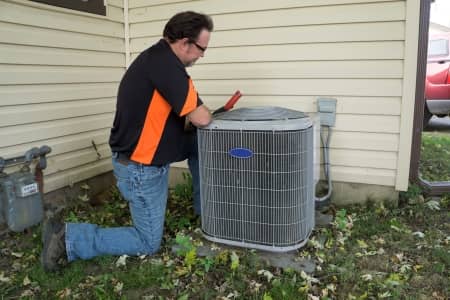Why Every Homebuyer Needs a Licensed HVAC Inspection Before Closing

When purchasing a home, most buyers rely heavily on the standard home inspection to uncover any hidden issues. While this is a crucial step in the process, it often overlooks one of the most expensive and vital systems in the house: the HVAC system. Standard home inspectors typically do a basic check—they turn on the heating and cooling systems to confirm they respond, and they may note the age of the equipment. But beyond that, their inspection is limited. They don’t take refrigerant pressures, inspect duct integrity in detail, or test electrical components thoroughly. This is where a licensed HVAC professional comes in, and why hiring one before closing on a home can save buyers thousands of dollars and a lot of future headaches.
What a Licensed HVAC Professional Brings to the Table
A licensed HVAC contractor doesn’t just flip a switch to see if air blows. They perform a detailed, system-specific evaluation that includes:
- Measuring refrigerant pressures to assess proper charge
- Evaluating superheat and subcooling to ensure efficiency
- Checking for leaks in refrigerant lines
- Testing electrical components like capacitors, contactors, relays, and motors
- Inspecting evaporator and condenser coils for cleanliness and performance
- Examining the condition and design of ductwork
- Reviewing air filtration and ventilation systems
- Assessing overall system sizing and installation quality
These are technical, critical tasks that standard home inspectors are not trained or licensed to perform. Without this level of detail, a buyer could be walking into a home with a barely functioning system that might fail shortly after moving in.
Why Standard Home Inspections Aren’t Enough
Home inspectors provide a valuable service, but they are generalists by design. Think of them as primary care physicians—they know a bit about everything, but they refer you to a specialist when something looks questionable. Unfortunately, when it comes to HVAC systems, the signs of trouble aren’t always obvious during a brief walkthrough.
For example, a system may appear to cool the house adequately but could be operating with dangerously low refrigerant levels or an overworked compressor. These types of issues won’t be caught unless someone connects gauges, runs performance tests, and understands the system’s internal pressures and balance.
Real Consequences of Skipping a Specialized Inspection
Imagine buying a home and finding out a few months later that the HVAC system needs a complete replacement. Depending on the type and size, a new system could cost anywhere from $7,000 to $15,000 or more. If a licensed HVAC inspection had been done before closing, this could have been identified, giving the buyer an opportunity to negotiate a lower sale price or request repairs.
It’s also worth considering that HVAC systems impact more than comfort. Poor ventilation, dirty ductwork, or improperly sized units can affect indoor air quality, energy bills, and even the resale value of the home.
Benefits for Homebuyers
- Negotiating Power: An HVAC inspection report can give buyers the leverage to negotiate the purchase price or request that the seller cover needed repairs.
- Peace of Mind: Knowing that the system has been thoroughly inspected by a licensed professional eliminates the “what-ifs” post-closing.
- Budget Planning: If repairs or upgrades are needed, having this information before closing helps buyers budget properly.
- Health and Safety: Issues like carbon monoxide leaks or poor indoor air quality can be identified and addressed.
- Efficiency Checks: Ensures that the system is running optimally, saving money on energy bills from day one.
Real-World Example
Let’s say a buyer hires a licensed HVAC contractor who discovers the system is undercharged and the compressor is overheating. This is not something a standard home inspector would catch. The buyer then uses this information to negotiate a $3,000 credit from the seller—a significant savings that not only covers the repair but prevents unexpected costs after moving in.
How to Include HVAC Inspections in the Homebuying Process
Most HVAC inspections cost a few hundred dollars and can often be scheduled within a few days. Buyers should talk to their real estate agent about including a contingency in the offer for specialized system inspections. Alternatively, some HVAC companies offer flat-rate real estate inspection packages specifically tailored for buyers.
Make sure to choose a licensed and insured HVAC professional with solid reviews and experience in residential systems. It’s also wise to request a written report with findings and any recommendations for repair or replacement.
Final Thoughts
A licensed HVAC inspection is a small investment with big returns. In the grand scheme of buying a home, spending a few hundred dollars for expert evaluation is a smart move. HVAC systems are too important—and too expensive—to be left to a flip of a switch. Protect your investment, your health, and your future by bringing in a professional who can give you the full picture.
Before you close on your dream home, make sure you know exactly what kind of air you’ll be breathing.
Contact Our HVAC Experts for Fast, Reliable Service In Yonkers & Surrounding Areas!
Or Fill Out Our Quick Form!